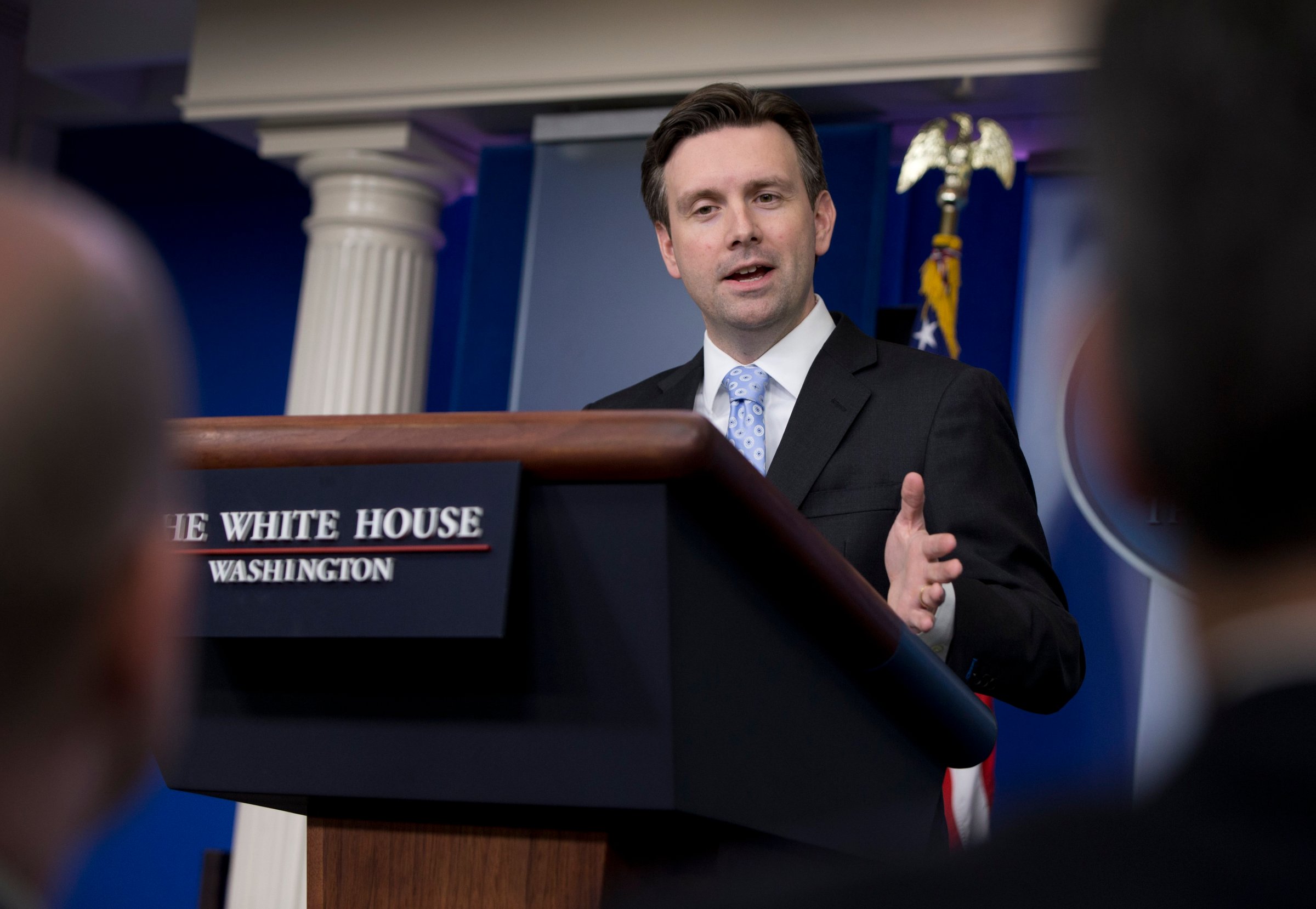
Today’s working fathers are struggling to balance the demands of their jobs with their home lives more than ever. That was the thrust of research discussed on a panel on fatherhood at a liberal think tank in Washington Wednesday.
But the panel also inadvertently revealed some of the reasons why this problem does not get the attention it deserves.
The audience at the event at the Center for American Progress was roughly balanced between men and women, though more women asked questions. Out of six speakers, four were women and only one spoke about his personal experiences as a father. That guest happened to be Josh Earnest, currently the White House press secretary, one of the most time-consuming and demanding jobs in Washington.
Earnest’s wife gave birth to their son, Walker, in August, luckily during Obama’s two-week vacation and a typically slow time for news in the nation’s capital. Earnest said that he has struggled with work-life balance in ways that fathers in the past may not have.
“There is a greater expectation that men will be more involved in the raising and parenting of their children, and that also has inspired I think, it certainly has in me, a desire to be part of that parenting,” he said. “And that does sometimes come into conflict with the pressures that you have at work to fulfill those work responsibilities.”
A CAP report released today entitled “Men, Fathers, and Work-Family Balance” echoed Earnest’s observation: “Fathers today are expected to be involved in child care and domestic responsibilities, sharing care work with their partners rather than simply helping out when needed. Increased societal pressure to be active and engaged parents means more men now face the type of competing demands that women face.”
The data backs this up. The National Study of the Changing Workforce, which was cited in the report, found that between 1977 and 2008, the percentage of mothers in dual-earner couples who reported work-family conflict grew from 41% to 47%, while the percentage of fathers reporting it grew from 25% to 60%.
“I think a lot of highly educated women have different expectations for what … type of partner they are interested in making a family with, so they’re not settling for a Don Draper-type of family,” said Erin Rehel, a co-author of the report and a panelist at Wednesday’s Center for American Progress discussion.
Panelists at the event suggested ways to fix it that would help fathers of all economic backgrounds: paid sick leave, paid family leave, better child-support regulations and predictable work hours.
President Obama brought these issues to the forefront when he mentioned paid sick leave in his State of the Union address last month. “Today, we’re the only advanced country on Earth that doesn’t guarantee paid sick leave or paid maternity leave to our workers. … And that forces too many parents to make the gut-wrenching choice between a paycheck and a sick kid at home. So I’ll be taking new action to help states adopt paid leave laws of their own.”
For now, Earnest is wrestling with how to make his own predictable hours, which, for him, means leaving the office around 5:30 p.m. once a week.
“One of the things that I have tried to install into my schedule here in the new year has been to find one weekday during the week when I will leave the office in time to get home to be a part of Walker’s bedtime ritual,” he said. “So far there have been four weeks in 2015 and I’ve made it each week. Now it’s Wednesday and I haven’t made it this week. The clock is ticking.”
More Must-Reads from TIME
- Donald Trump Is TIME's 2024 Person of the Year
- Why We Chose Trump as Person of the Year
- Is Intermittent Fasting Good or Bad for You?
- The 100 Must-Read Books of 2024
- The 20 Best Christmas TV Episodes
- Column: If Optimism Feels Ridiculous Now, Try Hope
- The Future of Climate Action Is Trade Policy
- Merle Bombardieri Is Helping People Make the Baby Decision
Write to Tessa Berenson Rogers at tessa.Rogers@time.com